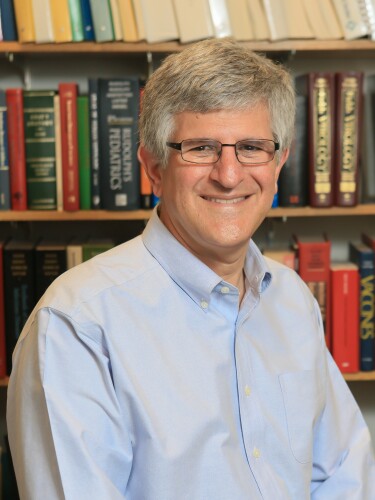In a year when eradicated diseases are on the uptick in America, how will American children survive RFK Jr.’s vaccine scrutiny and inconsistency? Two experts call on pharma and regulatory bodies to rebuild trust.
In the year 2025, physicians are becoming familiar with the measles…again. About 25 years ago, measles was successfully eradicated from the United States. Ironically, the measles vaccine has long been considered the golden standard for vaccines.
The environment is dangerously confusing. While the new Health and Human Services Secretary Robert F. Kennedy Jr. suggested that he was not anti-vaccine in congressional confirmation hearings prior to his confirmation, his vocal distrust of their safety and actions have influenced the rise in cases. His activities and comments since entering the position, brought up by Senator Murphy in the HHS budget hearing on May 14, 2025, have demonstrated otherwise.
Specifically addressing the measles vaccine, Senator Murphy recounted statements Kennedy has made previously about it such as “the vaccine wanes very quickly, … the measles vaccine was never fully tested for safety, … there is fetal debris in the vaccine.” Kennedy interjected, “All true, all true.” Among his comments that day, Kennedy also stated, “My opinions about vaccines are irrelevant…. I don’t think people should be taking medical advice from me.”
And as this plays out, the measles outbreak is ticking onward and upward.
The Return of Preventable Diseases
The United States is currently experiencing a significant measles outbreak, with official reports indicating approximately 1,000 confirmed cases. However, according to Paul Offit, MD, director of the Vaccine Education Center at Children’s Hospital of Philadelphia, the actual number might be much higher.
“I think there’s probably 5,000 cases right now,” Offit stated in a recorded Denatured podcast discussion. “If you look at the CDC website, it’ll say about 900 cases [at the time of the recording]. It’s much more than that... because if you look at the number of people who have died, which is three for a virus that really has a mortality rate of one in 1,000, and you look at the doubling rate, and you look at the hospitalization rate, it’s between 3,000 and 5,000 cases. Twenty-five states have measles, and nine states are considered to be in an outbreak situation.”
This means that across the country, doctors who have never even seen a measles case before are dealing with a forgotten disease. One that is much more than a simple rash.
In a conversation with BioSpace, Ruth Lynfield, MD, state epidemiologist and medical director at the Minnesota Department of Health and co-principal investigator of the Minnesota Emerging Infections Program, emphasized how dangerous measles can be. “In this country, before we had widespread use of measles vaccine, we would have about three to 4 million cases a year, 48,000 hospitalizations, 400-500 deaths a year, and about 1,000 cases of encephalitis” attributed to the measles.
Lynfield continued, “One thing that is not appreciated about measles is that there is a rare syndrome called subacute sclerosing panencephalitis, which is a progressive neurological condition that can occur years, typically seven to 10 years after a measles infection, that causes significant neurological damage and is almost always fatal.”
According to both Offit and Lynfield, measles is one of the most contagious pathogens out there. So much so that an infected person can infect nine of 10 people who are in the same room as them. The virus is able to survive in the air for up to two hours after someone leaves a room.
So with the pathogen’s contagiousness and serious to deadly impacts for the population, why we aren’t hearing more about the disease is a question both doctors, among others, are asking.
The Gold Standard Vaccine
Measles vaccines are remarkably effective, Lynfield noted, “The measles vaccine is the gold standard, the one we hold up all other vaccines to, because after one dose, it is 93% effective. After two doses, 97% effective, and the effectiveness is lifelong. It is an incredible vaccine.”
Despite this proven effectiveness, vaccination rates have fallen, putting communities at risk.
We eliminated the memory of that disease. People don’t remember how sick that virus can make you.
A Generation Without Memories
One key challenge in vaccine acceptance is that many younger parents have never witnessed the devastation these diseases can cause.
Offit explained, “I think the biggest problem actually is... we eliminated measles from the United States in 2000, but I think it’s not only that we eliminated the disease. We eliminated the memory of that disease. People don’t remember how sick that virus can make you.”
Lynfield concurred, “The current generation of parents grew up at a time when measles was not circulating broadly. They don’t have the same visceral fear and respect for infectious diseases that previous generations had.”
This lack of firsthand experience extends to healthcare providers as well. Offit notes that many physicians have never seen cases of measles, which complicates diagnosis and treatment. Measles was never a right of childhood passage. It was a feared disease.
Pertussis (Whooping Cough) Resurgence
It’s not just measles making a comeback. Offit pointed out, “Last year, we had 35,000 cases of whooping cough and about a dozen deaths. We hadn’t seen that number of cases in eight years. And last year, 2024, that was six times more cases than we had in the previous year.”
Lynfield explained that pertussis can be particularly dangerous for infants. “Whooping cough or pertussis... can cause apnea, where they stop breathing.” She also highlighted that many cases go unreported because symptoms can resemble other respiratory infections.
Skepticism versus Cynicism
Both experts distinguish between healthy skepticism and dangerous cynicism toward vaccines. Offit, a member of the FDA Vaccine Advisory Committee, stated, “I think everybody who sits around the table at the FDA Vaccine Advisory Committee is a vaccine skeptic. Show us the data, prove something is safe, prove it’s effective.”
Lynfield echoed the overwhelming concern surrounding vaccine cynicism, particularly the around the misinformation associating them with autism. Lynfield noted, “There has been a lot of work that has found that vaccines with the MMR are not associated with autism. A lot of great work. The National Academy of Medicineput out a report reviewing all the studies. It is settled science.”
“What is so heartbreaking is not understanding that vaccination really protects your child, and the misinformation about autism has really resulted in a lot of damage and trauma to families,” she continued.
The Path Forward
Both experts emphasize the need for better education and communication about vaccines. They both commented that pharmaceutical companies could do more to explain their processes. Lynfield stressed the importance of rebuilding trust. “It is extremely challenging in this day and age when information can come from so many different places... there has been a lack of trust from government sources, and we really need to rebuild that trust.”
She further continued with a reminder of how far we’ve come. “As Americans, we have, in general, an expectation that our children will be healthy and that we will be healthy, and we really need to appreciate the tools that we have, because it was not so long ago when the mortality rate among under-fives... was [high]. There were a bunch of infectious diseases that killed young children... We have these precious tools, and we really do need to appreciate them and to use them.”








